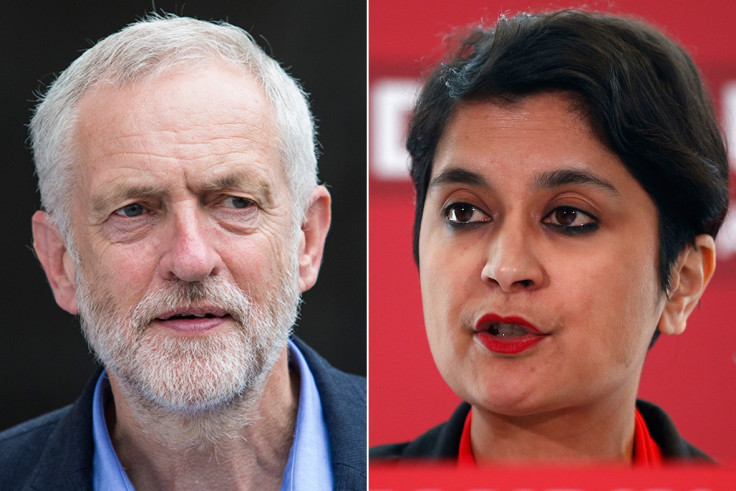Shami Chakrabarti urged to defy Jeremy Corbyn over Snooper's Charter as she enters Lords
Human rights campaigner Chakrabarti will be introduced to Lords as a Labour peer today.

Shami Chakrabarti is being urged to stick to her guns and defy Jeremy Corbyn, as she is introduced to the House of Lords today (13 September). The human rights campaigner warned against the government's controversial Investigatory Powers Bill when she headed up Liberty.
"Our every move is already tracked by CCTV cameras," she told the BBC in November. "But if the draft Investigatory Powers Bill becomes law, we won't be safe from the prying eyes of the government and the police."
But now Chakrabarti, after leading Labour's anti-Semitism inquiry, will be representing the party in the upper chamber.
The draft surveillance legislation is at its reporting stage in the Lords, giving Chakrabarti the opportunity to vote against Theresa May's flagship policy and her leader, who supports the bill, over what digital rights campaigns brand the "Snooper's Charter".
Liberal Democrat Lord Brian Paddick has written to Chakrabarti to grill her over her position. "As you said it is 'a breath-taking attack on the internet security of every man, woman and child in our country'," Paddick said.
"We will be voting against handing these powers to the government at Report Stage and I am sure you will be you joining us in the lobby when the time comes.
"We are very glad to see that Labour chose to nominate someone to the Lords with such a strong record on civil liberties and human rights, the defence of which has been sadly missing in the Labour party to date.
"I hope that your appointment indicates a shift away from the current Labour Party position and I would be more than happy to work with you to convince your colleagues both in the Commons and the Lords about the importance of protecting civil liberties."
What is the Investigatory Powers Bill?
The Investigatory Powers Bill – often referred to by critics as the Snooper's Charter – will provide UK intelligence agencies and police forces with greater access to bulk communications and internet data than ever before.
The legislation seeks to put into clear legal terms many of the spying and surveillance techniques exposed by NSA whistleblower Edward Snowden in 2013 – including bulk interception and computer network exploitation (CNE), also known as hacking.
While officials from the intelligence community including the Government Communications Headquarters (GCHQ) and MI5 argue that the bill contains no new powers, many privacy advocates are concerned about the storing of internet metadata – which, if the bill passes, will be held by service providers for 12 months.
While law enforcement maintains the IPBill will aid terrorism investigations, drugs cases and human trafficking, opponents believe the proposals lack clarity and could lead to unbridled surveillance by a potential police state.
Much remains unknown about the rollout – including how much it will cost the UK taxpayer. Nevertheless, it is expected to be made into law by the end of 2016 before the sunset clause on the current legislation – DRIPA – expires in December.
© Copyright IBTimes 2025. All rights reserved.






















